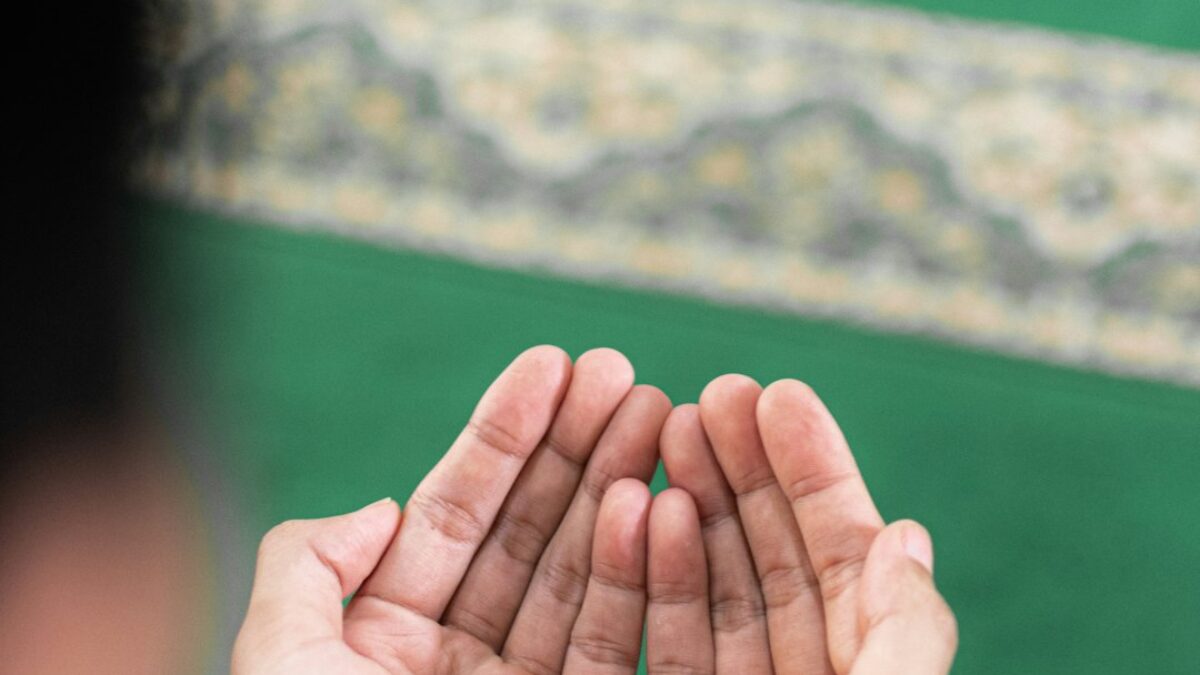Ramadan is the holiest month in the Islamic calendar, a period of reflection, devotion, and heightened spiritual awareness. Central to this month is Sawm—the obligatory fast from dawn to sunset. Yet Islam’s legal and ethical tradition is equally attentive to mercy, proportionality, and individual circumstances. Consequently, the Qur’an and the prophetic Sunnah lay down clear yet nuanced guidelines on who may be excused from fasting and why. Understanding these exemptions is vital not only to avoid undue hardship, but also to preserve the spirit of worship through lawful alternatives such as fidya (compensatory feeding) or qada (making up missed days). In this article we delve deep into the categories of people excused from fasting, the scriptural and juristic reasoning behind each exemption, and the practical steps Muslims can take to stay spiritually engaged while honoring divine concessions.
Understanding Ramadan Fasting Exemptions
Fasting is fard (obligatory) on every adult Muslim who is physically and mentally able to do so. Islamic law, however, recognizes that the obligation ceases or is modified when its fulfillment would cause harm or unbearable difficulty. The Qur’an (2:185) famously states: “Allah intends for you ease and does not intend for you hardship.” Based on this overarching principle, classical jurists developed detailed rulings that exempt certain individuals either temporarily or permanently. The exemptions are neither loopholes nor spiritual stigmas; rather, they are legal mercy that safeguards life, health, and societal responsibilities.
Primary Sources of Authority
- Qur’an (2:184–185, 2:196, 4:29, 5:6) – verses outlining the basic obligation, exemptions, and compensations.
- Hadith – statements such as “Verily Allah has relieved the traveler of half the prayer and fasting, and the pregnant and nursing woman of fasting” (Abu Dawud).
- Ijmaʿ and Qiyas – scholarly consensus and analogical reasoning that extend exemptions to analogous situations.
Key Components of Ramadan Fasting Exemptions
1. Minors (Pre-Pubescent Children)
Islamic law sets puberty as the threshold for religious obligations. Hence, children are not required to fast. Many families, however, encourage partial fasting to cultivate familiarity and spiritual enthusiasm. Once a child reaches puberty, fasting becomes obligatory provided the other conditions (sanity, health, residency) are met.
2. The Mentally Unsound or Cognitively Impaired
Individuals suffering from chronic mental illnesses—such as advanced dementia, severe intellectual disabilities, or psychotic disorders—are completely exempt. Their caretakers are not obliged to arrange qada on their behalf; fidya is recommended but not mandatory.
3. The Physically Ill
Acute Illness
Short-term ailments like high fever, gastroenteritis, or influenza can temporarily prevent fasting. A person may break the fast only when fasting would worsen the illness or delay recovery. Missed days must be made up later.
Chronic Illness
Conditions such as advanced diabetes (with recurrent hypoglycemia), end-stage renal disease, or terminal cancer may justify permanent exemption. In such cases, the individual pays fidya: feeding one poor person for each missed day. Evidence includes the Qur’anic allowance: “Upon those who can fast with hardship, a ransom of feeding a poor person” (2:184).
4. The Elderly and Infirm
Post-menopausal elderly who experience continuous weakness and for whom fasting poses significant health risks fall under the same concession as chronic patients. The same ruling applies to frail seniors who cannot safely fast even under medical supervision.
5. Pregnant and Breastfeeding Women
The prophetic precedent cited earlier provides a blanket exemption. Contemporary scholars take it further by classifying pregnant and nursing women into three scenarios:
- No hardship: Fast as normal.
- Moderate hardship: Break the fast and make up later (qada only).
- Significant risk to mother or child: Break the fast and pay fidya if the risk is ongoing.
6. Travelers (Musafir)
A journey must exceed approximately 90 km and be permissible in purpose (not sinful). The concession applies from the moment of departure until return. The traveler may:
- Fast if able without undue hardship.
- Break the fast and make up the days later.
Modern air travel does not nullify the concession, though some jurists advise fasting if the journey is short and comfortable.
7. Menstruation and Post-Natal Bleeding
Women experiencing hayd (menstruation) or nifas (post-natal bleeding) are prohibited from fasting. Missed days must be made up before the next Ramadan. No fidya is required because the prohibition is temporary and remediable.
8. Extreme or Coerced Situations
- Battlefield combatants facing imminent danger.
- Forced laborers under threat of life (e.g., prisoners).
- Areas with continuous daylight or darkness follow alternative timetables or the schedule of the nearest moderate latitude.
Benefits and Importance of Understanding Exemptions
Recognizing legitimate exemptions yields spiritual, communal, and legal benefits:
- Preserves life & health: Aligns worship with the maqasid (higher objectives) of Sharia.
- Reduces guilt & anxiety: Believers who are exempt need not feel spiritually “lesser.”
- Strengthens community care: Collection and distribution of fidya channels wealth to the needy.
- Minimizes legalism: Prevents extremism while upholding the sanctity of Ramadan.
Practical Applications
Step-by-Step Guide for Assessing One’s Situation
Medical Evaluation
Consult a trusted Muslim physician or a healthcare provider familiar with Islamic rulings. Obtain written documentation if chronic illness warrants permanent exemption. Scholarly Consultation
Seek guidance from qualified scholars who understand both medical facts and fiqh nuances. Provide the doctor’s report and explain personal circumstances fully. Decide on Qada, Fidya, or Both
ScenarioQada RequiredFidya Required Acute illness (recoverable)YesNo Chronic illness (no hope of recovery)NoYes Pregnancy/nursing with riskYes (if only temporary)Yes (if ongoing risk) Menses/post-natal bleedingYesNo Travel < 3 daysYesNo Calculate Fidya Amount
Feed one poor person two meals per missed day (≈ 1.5 kg staple food or its cash equivalent). Example: In 2025, many charities set the rate at US $10 per day. Spiritual Alternatives
Increase dhikr, duʿāʾ, and charity to compensate for the missed physical act. Support iftar gatherings or sponsor meals at local mosques.
Case Studies
Case 1: Diabetic Teenager
Amir, 16, has Type 1 diabetes. His endocrinologist confirms that prolonged fasting would trigger dangerous hypoglycemia. Amir’s family arranges qada during shorter winter days and donates fidya for any days he may miss permanently due to medical advice.
Case 2: Post-Partum Mother
Layla delivered twins via C-section. She abstains for the first 40 days (nifas) and an additional 20 days while breastfeeding. She makes up 60 days across the following year and sponsors 60 meals at the mosque as fidya to express gratitude.
Case 3: Frequent Business Traveler
Imran flies weekly between two cities 400 km apart. He opts to fast on outbound flights when the airport lounge provides suhur and iftar times are predictable. On longer transatlantic trips, he avails the traveler’s concession and performs qada in winter.
Frequently Asked Questions
What is the difference between qada and fidya?
Qada means making up the exact number of missed fast days at any time before the next Ramadan. Fidya is a compensatory feeding of the poor required only when there is no reasonable hope of recovering the ability to fast. In some cases—like chronic illness—fidya substitutes for qada; in others—like menses—qada alone suffices.
Can I combine missed fasts with voluntary fasting (e.g., six days of Shawwal)?
While it is permissible to fulfill qada during Shawwal, combining the nafl intention for the six fasting days is debated. The majority hold that each intention must be distinct; therefore, one should first complete all qada before observing the six Shawwal fasts.
How is fidya calculated in non-Muslim-majority countries?
Calculate the local cost of a standard meal (rice, bread, lentils). If the average meal costs US $5, then fidya for 30 days equals $150. Most mosques issue annual guidelines; alternatively, you can donate the equivalent to reputable Muslim charities that distribute food in impoverished regions.
Does taking medication orally break the fast?
Yes, if the medicine reaches the throat or stomach. However, non-nutritive injections, inhalers, or topical patches generally do not. Always consult a scholar-pharmacist team to balance medical necessity with fasting integrity.
I am breastfeeding twins and feel weak. Should I pay fidya or just make up the days?
If your weakness is temporary (e.g., resolved post-weaning), only qada is required. If medical evidence shows ongoing nutritional depletion that prevents future fasting safely, then fidya is also due.
What if I start fasting and then become ill midday?
You must break the fast immediately to prevent harm. The day counts as invalid and must be made up later. There is no sin, as preserving life takes precedence.
Are there digital tools to track days and calculate fidya?
Yes. Apps such as Ramadan Legacy, Muslim Pro, and
























Post Comment